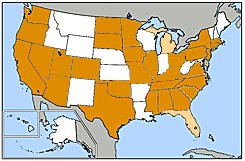Washington, DC
I just spent a long night in DC (long because sleep did not come easily after my evening nap). It was sort of a transition day between my time in Japan and my next series of gigs in Columbus, Georgia. Perhaps it will cushion the culture shock a bit. Perhaps.
Jen and I have begun to really consider what our next year will be like, and last night as we Skyped, and emailed calendar items back and forth, and generally geeked out together online from across the country, we discussed how we might find some balance in our lives.
Next fall, Jen is heading back to school to work on a nursing degree, and I’ll be heading back to the classroom. Aspen will be in 2nd grade, and Johanna in 5th (yikes!) It’s going to be a busy year, even before the extra speaking engagements and panels I’ve already been asked to serve on.
What it comes down to is this: if I’m going to be gone from home, it better be something I’m passionate about, and it’s got to be financially worth our while. This year, I’ve received my normal teacher’s salary, thanks to the generous support of Intel (based here in Oregon.) I have occasionally received honoraria from various groups, and certainly been treated to some remarkable experiences, but compared to the sacrifices that my family and I have had to make this year, the monetary compensation has been, well, teacher-like.

After my official reign ends at the end of the school year, I have several organizations that have asked me to come speak at their events. At this point, I’ll be able to charge a speaking fee and act as an independent consultant. It feels a bit strange to be asking for decent sums of money in exchange for an hour of my thoughts. But I need to remember that my thoughts are valuable, and have been shaped by some unique experiences. And that an hour-long talk is actually years in the making, many hours in the preparation, and days in travel. And finally, I need to honor my family and the sacrifices they have made this year on my behalf, and on behalf of other children.
I’ll be experiencing culture shock this fall as I settle back into a more “normal” life. But I’ll bring parts of my new life with me, too. Somewhat analogous to eating sushi in Georgia, I suppose. It’s going to be an interesting transition.































